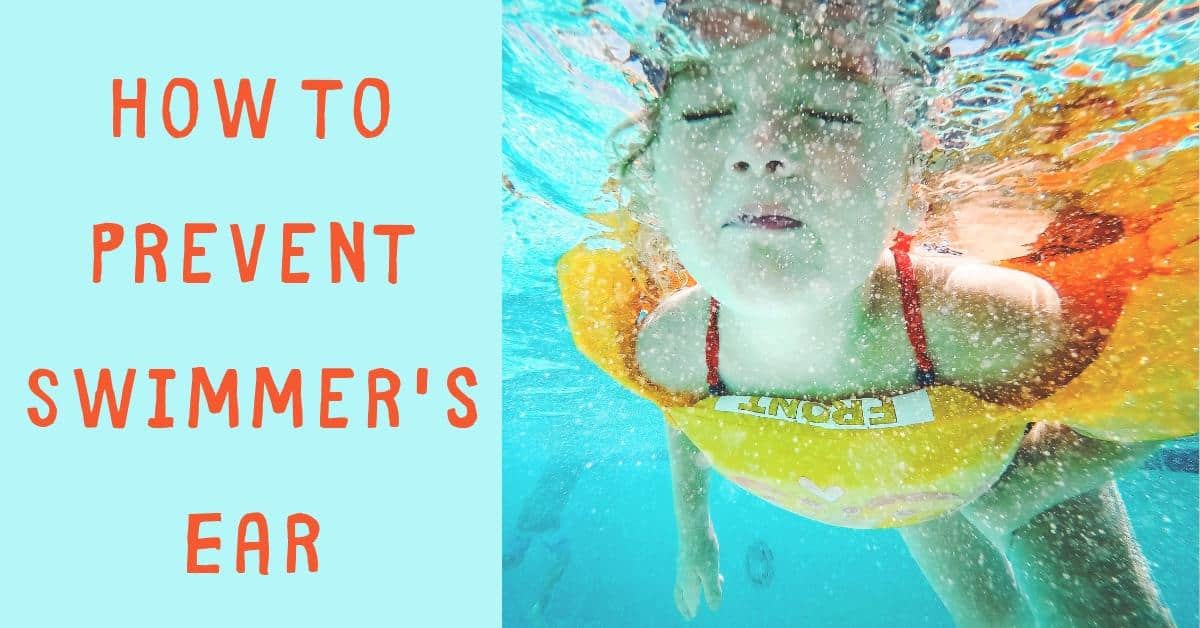
Anyone who has experienced swimmer’s ear knows how painful it can be. The condition is caused by trapped fluid within the ear that has harmful bacteria. When that bacteria is trapped in the warm, hospitable environment of the inner ear, it becomes a breeding ground, and the growth of bacteria in the ear is incredibly painful and can even lead to other dangerous health conditions, including hearing loss or the possibility that the infection might spread to other parts of the body. For these reasons, swimmer’s ear is nothing to take lightly. The good news is that there are steps you can take to prevent swimmer’s ear and to keep your ears free of bacteria-ridden fluid. These preventative steps take place in three different phases. In the first place, the ears should be cared for regularly. In the second stage, there are preventative steps you can take prior to swimming that can reduce the likelihood of swimmer’s ear. Finally, you can do things after a swim that will limit the possibility of swimmer’s ear, as well.
Maintaining Regular Ear Health
Keeping the ears free of harmful debris, substances, and bacteria is a regular and ongoing task. Be sure to wipe the outer ear daily with a clean dry cloth. Any substance that could be harmful to the ears will be cleared through this simple action, including the earwax that might creep out of the inner ear. However, beyond this cleaning of the outer ear, you should avoid cleaning more deeply into the ear canal. Everyone has experienced the temptation to insert a cotton swab into the middle ear; it seems like they are designed for that purpose. However, placing a cotton swab in the ear is detrimental in a number of ways. It commonly forces earwax even deeper into the ear rather than removing it. In the process, it can also press earwax against the eardrum, causing damage. In addition, make sure that anything you place near the ear is clean, including headphones, earbuds, and hearing aids. Be sure to clean them regularly with rubbing alcohol to remove harmful bacteria. If you are using hair products, sprays, dry shampoo, or any other substance near the ears, it may be best to place cotton balls in the ears for protection. Regular ear health is best maintained by basic cleaning of the outer ear and annual visits to Swift Audiology.
Before You Swim
Some preventative measures before a swim can be essential in avoiding swimmer’s ear. In the first place, check the bacteria level of the body of water in which you want to swim. Salt water tends to be good, but closed bodies of water, such as lakes and ponds, as well as “fresh” water rivers can all be hosts to harmful bacteria. Even the Great Lakes in the United States can host harmful bacteria. Check with a park ranger or lifeguard to monitor the bacteria level prior to entering the water. Even swimming pools and chlorinated spas or hot tubs can host bacteria, as well, so take caution with any swimming environment. Ear plugs are specifically designed to keep the ears dry during swimming, and swimming caps can be worn over the ears to minimize water exposure.
After You Swim
When you finish swimming, a few simple steps will help protect you from swimmer’s ear. Dry your ears with a clean towel. If you feel any fluid trapped in the ear, shake your head gently and turn the head from side to side. A hair dryer held away from the ear and used on a low setting can be helpful. Finally, if you feel that fluid may be trapped, eardrops are available for purchase that can help you. You can also make your own solution of a half teaspoon white vinegar and half teaspoon rubbing alcohol to be poured into each ear and then drained out. If you take these steps and have any worry that water is still trapped within your ear, don’t delay to seek out the attention of an ear specialist. You don’t want to take chances when it comes to harmful bacteria breeding in your ears after a swim!
Swift Audiology
If you’re experiencing issues with your hearing health, give us a call at Swift Audiology! We provide comprehensive hearing health services, from hearing tests to hearing aid fittings. We’re here to help!
